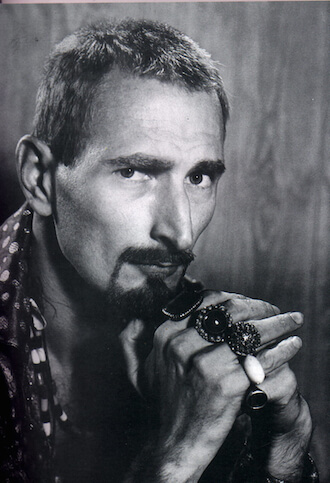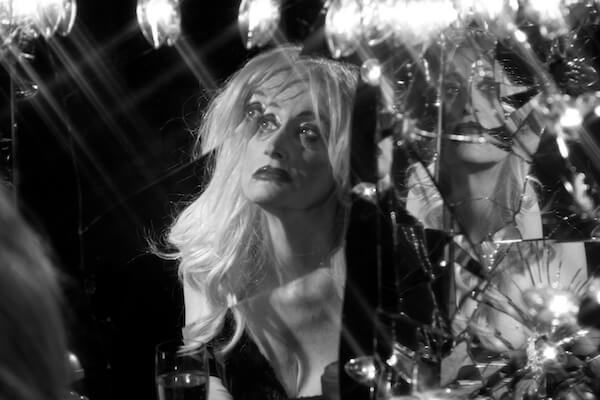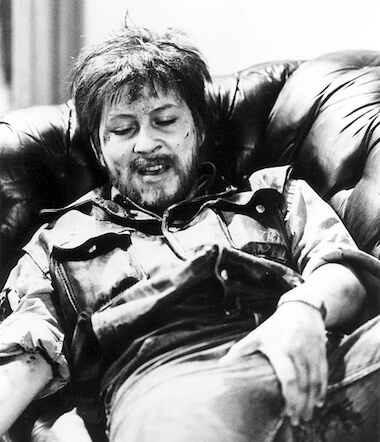This coming week, Anthology Film Archives features several fascinating representations of queer life.
Nguyá»…n Thị Thấm’s observational documentary “Madam Phung’s Last Journey” provides a look into the world of a traveling drag show that performs for rural audiences in Vietnam. Their leader, Madam Phung, a former monk, gives advice to her troupe of gay and transgender singers, warning them about the perils of booze and cards and to watch out for the police and gangs that could harm them. Working, she emphasizes means “growing up,” and the film makes her care for her troupe as palpable as the Southeast Asian heat.
The crew is seen setting up and breaking down their stage in different fields and dressing up in drag for their shows –– and later undressing. One performer may admonish the director not to film her, saying, “My boobs are fake!,” but most of what is on display in this gritty documentary is real.
Anthology Film Archives presents the final journal of a Vietnamese drag queen and a restored look at Jack Smith
Madam Phung candidly declares, “Life is tough. I have to be tough.” She recounts how she “ran away from the pagoda” where she was worshipping so she could pursue “worldly pleasures.” Despite the pleasures, her experiences on the road have included many hardships, some of which the film presents. She discusses her crushing debt (despite amassing gold bars to fund her travelling show) and how difficult it is to be gay or trans in Vietnam.
Most poignantly, “Madam Phung’s Last Journey” shows the pride one performer has in making dresses to wear on stage, as well as the strong emotion in a song about being “neither man nor woman,” and so not fitting in with the rest of the world. When someone explains that being gay is karma payback for sinning in a past life, the moment is quietly powerful. So too is this intriguing film that eventually explains why this journey is Madam Phung’s last.
Jerry Tartaglia celebrates the work of the late gay performance artist and filmmaker Jack Smith with two programs at Anthology. In a phone interview, the curator spoke about how he became an authority on the work of Smith, who died at 56 in 1989.
“I first met Smith when I accidently found his camera original of ‘Flaming Creatures,’” Tartaglia recalled. “I was working in a film supply house that recycled film stock, and by luck I saw images of Francis Francine and I brought him back the original image, and that created some trust in me. After he died, the custodians of his estate asked me to help get some of Jack’s work into shape, and it’s occupied 23 years of my life. In 2008, the heir of the estate sold the estate to Gladstone Gallery, and they engaged me to finish the work.”
The opportunity for Tartaglia to present Smith’s works to audiences has become his passion, and he encourages both fans and those unfamiliar with the filmmaker to seek out these programs.
“Smith creates a magic, and it’s a magic of transformation,” he said. “If a filmgoer is attentive and patient and remains present and attentive with his films, they will experience some of that magic. It is a body of work that is geared toward an audience that appreciates and yearns for romantic transformation.”
Program 1, on November 13, includes “In the Grip of the Lobster,” which is a good example of Smith’s queer underground theater and camp aesthetic. “Gems, Clips, and Shorts” features rarely seen archival materials. Tartaglia chose these snippets because “each one is a complete cinematic, visual idea.” He added, “One is included because singer/ actress Tally Brown is in it, and there are so few images of Brown.”
Program 2, on November 14, includes “Midnight at the Plaster Foundation,” which Tartaglia explained, “is the only complete [film] of one of Smith’s live performances. I will play live musical accompaniment using his vinyl LP collection. His whole aesthetic is to create an environment that is open to catastrophe, and in those moments, something extraordinary would happen. He would push his actors and create a moment of truth in these performances.”
Other shorts in the program include “Song for Rent,” where Smith appears in a wheelchair as his alter ego Rose Courtyard, while Kate Smith sings “God Bless America;” “Milk Bath Scene from ‘Normal Love,’” a fabulous and heady clip excised from a larger work; and a fragment from “Hamlet in the Rented World.”
Tartaglia acknowledges that Smith and his work were not well received by the gay community or the arts community generally at the time they were made, but he makes a case for why these films remain interesting and important curios.
“He was over the top in the way,” Tartaglia said. “He had a very difficult personality, which got in the way of his self-promotion. There would be four to five people at his performances. There wasn’t the kind of success other artists had in that period. For people who are looking for a literal message or positive comments about queer identity, they will have to look and work at interpreting this work in the context of history.”
MADAM PHUNG’S LAST JOURNEY | Directed by Nguyá»…n Thị Thấm | Icarus Films | Anthology Film Archives, 32 Second Ave. at Second St. | Nov. 12-18 | anthologyfilmarchives.org
JERRY TARTAGLIA PRESENTS: RESTORED WORKS BY JACK SMITH | Anthology Film Archives | Nov. 13-14





































